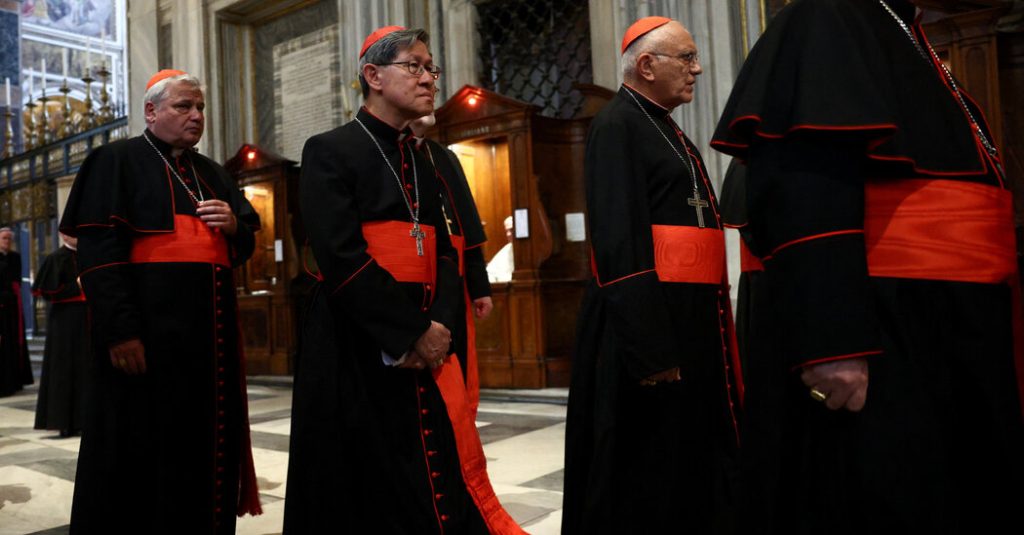She did not, despite her penchant for hats, wear an Easter bonnet. Instead, when Melania Trump materialized on a flower-festooned White House balcony next to her husband (who was in his usual red, white and blue) to celebrate the White House Easter Egg Roll, she did so wearing an Easter … coat. And not just any old Easter coat: a cream leather Easter trench complete with epaulets and raised collar, tightly knotted at the waist, from the Montreal-based brand Mackage.
Thus did the first lady again seem to scramble the messages.
As an outfit, the trench was giving less “avatar of spring” or “hostess of the nation” and more “ceremonial holiday general” in charge of the eggs. (Well, they are increasingly precious these days.)
While the trench might have been anomalous amid the gingham dresses, florals and shorts worn by many of the children playing on the South Lawn as their parents milled around, the fact the coat was by Mackage, a luxury outerwear company favored by Meghan, Duchess of Sussex, but not, typically, by Mrs. Trump, was even more unexpected. Mackage, which was founded in Quebec in 1999, was sold to the American private equity group Lee Equity in 2017, but remains headquartered in Canada.

While Mrs. Trump’s outfit stood out at the Egg Roll, it was typical of her recent fashion choices in which she has worn coats to several events. President Trump opted for his typical suit and tie.Credit…Haiyun Jiang for The New York Times
Once upon a time, back when first ladies generally wore American designers unless they were deliberately engaged in the game of sartorial diplomacy, the fact that Mrs. Trump had suddenly decided to shine a light on a Canadian brand just when Canadian tariffs were a big part of the political conversation and a Canadian election was looming would have been a significant statement.
Advertisement
SKIP ADVERTISEMENT
Once upon that time, her choice might have been interpreted as a sign either in support of free trade and cross-border cooperation, or a sign that — despite fears of Canadian goods becoming more expensive — the first family was proof positive not all trade would stop.
Subscribe to The Times to read as many articles as you like.












